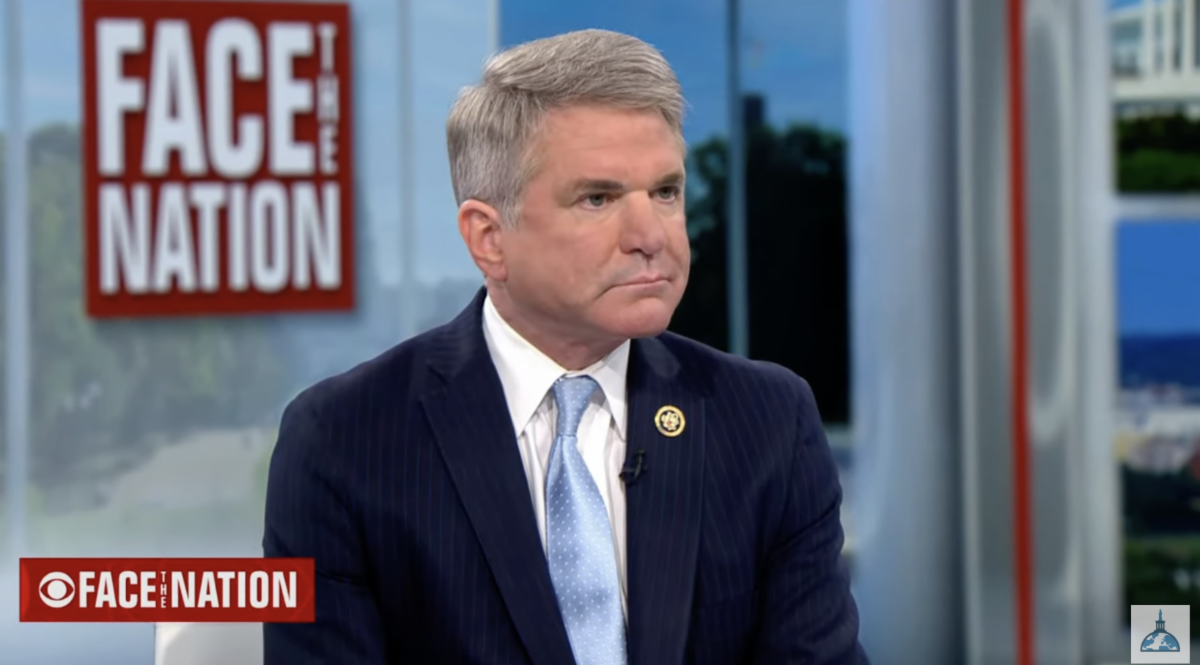Reps. Troy E. Nehls and Brad Schneider Introduce the Bipartisan DOCTORS Act
 Congressman Troy E. Nehls (R-TX-22) and Congressman Brad Schneider (D-IL-10), along with 14 others, introduced the bipartisan Districting Our Country’s Transfer of Residency Slots (DOCTORS) Act, to help address nationwide physician shortages by reallocating unused waivers from the Conrad 30 waiver program to states who use their maximum number of waivers. Senator Joni Ernst (R-IA) and Senator Amy Klobuchar (D-MN) introduced the Senate version of this legislation on September 5, 2023.
Congressman Troy E. Nehls (R-TX-22) and Congressman Brad Schneider (D-IL-10), along with 14 others, introduced the bipartisan Districting Our Country’s Transfer of Residency Slots (DOCTORS) Act, to help address nationwide physician shortages by reallocating unused waivers from the Conrad 30 waiver program to states who use their maximum number of waivers. Senator Joni Ernst (R-IA) and Senator Amy Klobuchar (D-MN) introduced the Senate version of this legislation on September 5, 2023.
The Conrad 30 waiver program allows foreign-born medical school graduates who came to the United States on a J-1 visa to bypass the requirement that they return to their home country upon completion of the J-1 exchange visitor program. Conrad 30 waivers are distributed on the condition that J-1 recipients agree to practice medicine for three years in a Health Professional Shortage Area, Medically Underserved Area, or Medically Underserved Population. Each state receives 30 waivers. As of Fiscal Year (FY) 2021, only 24 states used their maximum 30 allocated slots, with 376 unused.
The DOCTORS Act would require state agencies to report to the Secretary of State how many unused waivers they retained at the end of each fiscal year. The Secretary will calculate the total unused waivers and disburse those equally back to the states that used their maximum 30 slots in the previous fiscal year, divisible by three. For example, under the DOCTORS Act, the Secretary would report out 376 unused waivers in FY 2021, and divide by three, meaning 125 waivers would be retained for distribution to maximum cap states in the following fiscal year. This would allow our nation to retain foreign physicians, without increasing the number of visas from its current amount.
The United States is expected to face a shortage of up to 124,000 physicians by 2033. This legislation would allow foreign-trained doctors in the United States to not only offset workforce shortages but incentivize high-quality medical professionals to practice in rural and underserved communities, such as the 22nd Congressional District of Texas.
“Since 2009, over 50 waivers have been given to foreign-born medical school graduates to practice in counties in my district,” said Congressman Nehls. “That’s 50 more doctors, who specialize in areas including anesthesiology, cardiology, infectious disease, internal medicine, neurology, pediatrics, psychiatry, radiology, transplants, urology, and more. Reclaiming unused waivers from the previous fiscal year is a simple, common-sense approach to address the critical nationwide physician shortages, without increasing the number of visas. I’m proud to introduce this critical bipartisan legislation with my colleague, Congressman Schneider, to assist our rural and underserved communities.”
“Our nation faces a critical shortage of physicians, especially in rural and medically underserved communities,” said Congressman Schneider. “I’m proud to build on my previous efforts to encourage highly skilled, foreign-born medical graduates to practice medicine in the areas of the country that need it most. The DOCTORS Act is a commonsense measure to ensure unused Conrad 30 waivers don’t go to waste, rather that they help offset physician shortages in states who utilize the program the most. This bill would help us ensure that all Americans, regardless of demographic, have access to high-quality health care providers.”
“Growing up in rural Montgomery County, Iowa, I’m familiar with limited hospital beds and long wait times for doctors,” said Senator Ernst. “By making much-needed changes to the Conrad 30 program, we can bring more qualified healthcare professionals to areas suffering from staffing shortages and burnout. I’m grateful to see this effort gain momentum in the House, and I will keep working to ensure all patients, particularly those in our rural communities, can access the care they deserve!”
“Over the last 15 years, the Conrad 30 program has brought thousands of physicians to underserved areas, filling a critical need for quality health care in our rural communities,” said Senator Klobuchar. “This legislation will allow states like Minnesota that always fill all of our Conrad 30 residency slots the opportunity to have more slots when other states have less demand. Together with my Conrad 30 bill, the DOCTORS Act will help us meet a growing demand for medical professionals. I’m proud to work with Senator Ernst and Representatives Nehls and Schneider to push for this common sense approach to addressing the physician shortage, which will help bring relief to patients who currently face long wait or drive times to see their doctor.”
Original cosponsors include Representatives Elise Stefanik (R-NY-21), Don Davis (D-NC-01), David Valadao (R-CA-22), Raja Krishnamoorthi (D-IL-08), Maria Salazar (R-FL-27), Terri Sewell (D-AL-07), Clay Higgins (R-LA-03), Sean Casten (D-IL-06), Ashley Hinson (R-IA-02), Andrea Salinas (D-OR-06), Bill Pascrell (D-NJ-09), Ami Bera (D-CA-06), Jim Costa (D-CA-21), and Vicente Gonzalez (D-TX-34).
“As the physician shortage is expected to deepen across the U.S., our legislation will help provide rural and underserved areas with accessible, quality, and affordable healthcare,” said Congresswoman Stefanik. “Mitigating Upstate New York and the North Country’s physician shortage and working to close the gap in coverage remains one of my top priorities. I have long advocated for the use and success of the J-1 Visa Exchange Visitor Program in NY21 to incentivize more trained physicians to come to our most rural areas.”
"Physician shortages continue to plague eastern North Carolina and much of rural America," said Congressman Davis. "The DOCTORS Act is critical bipartisan legislation that will more precisely give limited waivers for international medical graduates completing a home residency program, benefiting the most underserved areas. The fight to improve access to health care must always include measures to address workforce shortages.”
“Rural communities like many across the Central Valley often struggle to attract and retain doctors,” said Congressman Valadao. “This leads to patients waiting longer to get care and puts immense pressure on doctors in the area who are already overworked. The DOCTORS Act will help historically underserved and rural communities increase the number of qualified physicians in their communities and ensure Valley residents can receive the medical care they need.”
“Iowans in rural communities often have challenges accessing medical care, facing limited space in hospitals, and having to drive far distances to see specialists or receive treatments,” said Congresswoman Hinson. “The DOCTORS Act will bring more medical professionals to our state to help address the current healthcare worker shortage and ensure rural Iowans have access to high-quality healthcare.”
This legislation is supported by the American Medical Association (AMA), the American Academy of Neurology (AAN), the Federation of American Hospitals (FAH), the American College of Obstetricians and Gynecologists (ACOG), and the American Academy of Family Physicians (AAFP).
“The AAFP is proud to endorse the DOCTORS Act, which is an important step toward addressing the country’s urgent physician workforce shortage,” said Steven P. Furr, M.D., FAAFP, President of the American Academy of Family Physicians. “The Conrad 30 Waiver Program allows international medical school graduates to stay in the U.S. after residency and practice in health professional shortage areas—providing care in areas that need it the most. This critical legislation will reallocate unused waiver slots from the program to states that need more physicians practicing in rural and underserved areas. Family physicians know that policies like the DOCTORS Act will reduce health disparities and help fill existing gaps in access to care in these communities.”
“Hospitals provide patients 24/7 access to life-saving care, which requires maintaining a robust, fully trained workforce,” said Charlene MacDonald, Executive Vice President of Public Affairs for the Federation of American Hospitals. “The bipartisan DOCTORS Act helps meet that need by allowing foreign medical graduates trained in the United States to stay and practice in the areas where they are needed most – rural and underserved communities. As the country faces a looming doctor shortage, the Federation appreciates Reps. Nehls and Schneider for leading on this issue that is so vital to ensuring patient access to care.”
“Requiring physicians who come to the United States on a J-1 visa to return to their country of origin upon completing their medical residency and preventing them from applying for another visa or green card for two years is a missed opportunity,” said Jesse M. Ehrenfeld, M.D., MPH, President of the American Medical Association. “It is not surprising that, since its inception in 1994, all 50 states have used Conrad 30 waivers to permit international medical graduates who complete American residency programs to remain in the United States in exchange for practicing in an underserved community for three years. The AMA commends Reps. Nehls and Schneider for introducing the DOCTORS Act and applauds efforts to preserve access to health care in underserved and rural communities.”








